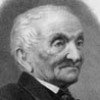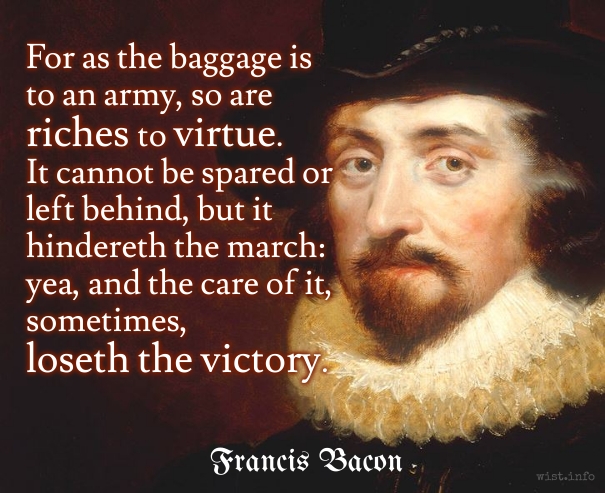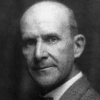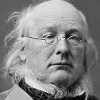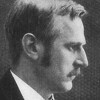Our political system has been thoroughly corrupted, and by the usual suspect — money, what else? The corruption is open, obscene, and unmistakable. The way campaigns are financed is a system of legalized bribery. We have a government of special interests, by special interests, and for special interests. And that will not change until we change the way campaigns are financed.
Molly Ivins (1944-2007) American writer, political columnist [Mary Tyler Ivins]
You Got to Dance With Them What Brung You, Introduction (1998)
(Source)
Quotations about:
money
Note not all quotations have been tagged, so Search may find additional quotes on this topic.
The ability of the rich and their acolytes to see social virtue in what serves their interest and convenience and to depict as ridiculous or foolish what does not was never better manifested than in their support of gold and their condemnation of paper money.
John Kenneth Galbraith (1908-2006) Canadian-American economist, diplomat, author
Money: Whence It Came, Where It Went, ch. 9 (1975)
(Source)
The first lesson of economics is scarcity: there is never enough of anything to fully satisfy all those who want it. The first lesson of politics is to disregard the first lesson of economics.
Thomas Sowell (b. 1930) American economist and political commentator
“Student Loans,” Is Reality Optional? (1993)
(Source)
Hence the lust for money first, then for power, grew upon them; these were, I may say, the root of all evils. For avarice destroyed honour, integrity, and all the other noble qualities; taught in their place insolence, cruelty, to neglect the gods, to set a price on everything. Ambition drove many men to become false; to have one thought locked in the breast, another ready on the tongue; to value friendships and enmities not on their merits but by the standard of self-interest, and to show a good front rather than a good heart. At first these vices grew slowly, from time to time they were punished; finally, when the disease had spread like a deadly plague, the state was changed and a government second to none in equity and excellence became cruel and intolerable.
[Igitur primo imperi, deinde pecuniae cupido crevit: ea quasi materies omnium malorum fuere. Namque avaritia fidem, probitatem ceterasque artis bonas subvortit; pro his superbiam, crudelitatem, deos neglegere, omnia venalia habere edocuit. Ambitio multos mortalis falsos fieri subegit, aliud clausum in pectore, aliud in lingua promptum habere, amicitias inimicitiasque non ex re, sed ex commodo aestumare magisque voltum quam ingenium bonum habere. Haec primo paulatim crescere, interdum vindicari; post, ubi contagio quasi pestilentia invasit, civitas inmutata, imperium ex iustissumo atque optumo crudele intolerandumque factum.]
Sallust (c. 86-35 BC) Roman historian and politician [Gaius Sallustius Crispus]
Bellum Catilinae [The War of Catiline; The Conspiracy of Catiline], ch. 10, sent. 3-6 [tr. Rolfe (1931)]
(Source)
Discussing the corruption of Rome in the years after the final defeat of Carthage.
Alt. trans.:
"A love of money, and a lust for power, took possession of every mind. These hateful passions were the source of innumerable evils. Good faith, integrity, and every virtuous principle, gave way to avarice; and in the room of moral honesty, pride, cruelty, and contempt of the gods succeeded. Corruption and venality were introduced; and everything had its price. Such were the effects of avarice. Ambition was followed by an equal train of evils; it taught men to be false and deceitful; to think one thing, and to say another; to make friendship or enmity a mere traffic for private advantage, and to set the features to a semblance of virtue, while malignity lay lurking in the heart. But at first these vices sapped their way by slow degrees, and were often checked in their progress; but spreading at length like an epidemic contagious, morals and the liberal arts went to ruin; and the government, which was before a model of justice, became the most profligate and oppressive." [tr. Murphy (1807)]
"First a love of money possessed their minds; then a passion for power; and these were the seeds of all the evils that followed. For avarice rooted out faith, probity, and every worthy principle; and, in their stead, substituted insolence, inhumanity, contempt of the gods, and a mercenary spirit. Ambition obliged many to be deceitful; to belie with their tongues the sentiments of their hearts; to value friendship and enmity, not according to their real worth, but as they conduced to interest; and to have a specious countenance, rather than an honest heart. These corruptions at first grew by degrees, and were sometimes checked by correction. At last, the infection spreading like a plague, the state was entirely changed, and the government, from being the most righteous and equitable, became cruel and insupportable." [tr. Rose (1831)]
"Therefore at first the love of money, then that of power increased. These things became as it were the foundation of all evils. For avarice overthrew faith, honesty, and all the other good acts; and instead of them it taught men pride, cruelty, to neglect the gods, and to consider everything venal. Ambition forced many men to become false, to have one thing hidden in their hearts, another ready on their tongue, to value friendships and enmities, not accordingly to reality, but interest, and rather to have a good appearance than a good disposition. These things at first began to increase by degrees, sometimes to be punished. Afterwards when the infection swept on like a pestilence, the state was changed, the government from the most just and best, became cruel and intolerable." [Source (1841)]
"At first the love of money, and then that of power, began to prevail, and these became, as it were, the sources of every evil. For avarice subverted honesty, integrity, and other honorable principles, and, in their stead, inculcated pride, inhumanity, contempt of religion, and general venality. Ambition prompted many to become deceitful; to keep one thing concealed in the breast, and another ready on the tongue; to estimate friendships and enmities, not by their worth, but according to interest; and to carry rather a specious countenance than an honest heart. These vices at first advanced but slowly, and were sometimes restrained by correction; but afterwards, when their infection had spread like a pestilence, the state was entirely changed, and the government, from being the most equitable and praiseworthy, became rapacious and insupportable." [tr. Watson (1867)]
"At first the lust of money increased, then that of power, and these, it may be said, were the sources of every evil. Avarice subverted loyalty, uprightness, and every other good quality, and in their stead taught men to be proud and cruel, to neglect the gods, and to hold all things venal. Ambition compelled many to become deceitful; they had one thought buried in their breast, another ready on their tongue; their friendships and enmities they valued not at their real worth, but at the advantage they could bring, and they maintained the look rather than the nature of honest men. These evils at first grew gradually, and were occasionally punished; later, when the contagion advanced like some plague, the state was revolutionized, and the government, from being one of the justest and best, became cruel and unbearable." [tr. Pollard (1882)]
"Hence it was the desire for money first of all, and then for empire, which grew; and these factors were the kindling (so to speak) of every wickedness. For avarice undermined trust, probity, and all other good qualities; instead it taught men haughtiness, cruelty, to neglect the gods, to regard everything as for sale. Ambition reduced many mortals to becoming false, having one sentiment shut away in the heart and another ready on the tongue, assessing friendships and antagonisms in terms not of reality but of advantage, and having a good demeanour rather than a good disposition. At first these things grew gradually; sometimes they were punished; but after, when the contamination had attacked like a plague, the community changed and the exercise of command, from being the best and most just, became cruel and intolerable." [tr. Woodman (2007)]
"At first the desire of power, then the desire of money increased; these were effectively the material of all evils, because avarice overturned faith, probity, and all other noble arts; in their place, it taught men to be arrogant and cruel, to neglect the gods, and to consider all things for sale. Ambition compelled many men to become liars; to hold one thing hidden in the heart, and the opposite thing at the tip of one’s tongue; to judge friends and enemies not in objective terms, but by reference to personal gain; and finally, to make a good appearance rather than to have a good mind. As these vices first began to increase, they were occasionally punished; but afterward, once the contagion had spread like a plague, the state as a whole was altered, and the government, once the noblest and most just, was made cruel and intolerable." [tr. @sententiq (2017)]
That it is the nature of ambition, to make men liars and cheaters; to hide the truth in their breasts, and show, like jugglers, another thing in their mouths; to cut all friendships and enmities to the measure of their own interest, and to make a good countenance without the help of good will. [tr. Cowley? (17th C)]
Perhaps indeed the possession of wealth is constantly distressing,
But I should be quite willing to assume every curse of wealth if I could at the same time assume every blessing.
The only incurable troubles of the rich are the troubles that money can’t cure,
Which is a kind of trouble that is even more troublesome if you are poor.
Certainly there are lots of things in life that money won’t buy, but it’s very funny —
Have you ever tried to buy them without money?
Ogden Nash (1902-1971) American poet
“The Terrible People,” New Yorker (11 Feb 1933)
(Source)
Reprinted in Many Long Years Ago (1945).
Marrying for money iz a meaner way tew git it than counterfiting.
[Marrying for money is a meaner way to get it than counterfeiting.]
Josh Billings (1818-1885) American humorist, aphorist [pseud. of Henry Wheeler Shaw]
Everybody’s Friend, Or; Josh Billing’s Encyclopedia and Proverbial Philosophy of Wit and Humor, “Puddin and Milk” (1874)
(Source)
When the accumulation of wealth is no longer of high social importance, there will be great changes in the code of morals. We shall be able to rid ourselves of many of the pseudo-moral principles which have hag-ridden us for two hundred years, by which we have exalted some of the most distasteful of human qualities into the position of the highest virtues. We shall be able to afford to dare to assess the money-motive at its true value. The love of money as a possession — as distinguished from the love of money as a means to the enjoyment and realities of life — will be recognized for what it is, a somewhat disgusting morbidity, one of those semi-criminal, semi-pathological propensities which one hands over with a shudder to the specialists in mental disease.
John Maynard Keynes (1883-1946) English economist
“Economic Possibilities for our Grandchildren,” Nation and Athenaeum (1930-10-11)
(Source)
Originally a society talk in 1920, expanded to a lecture given in Madrid (1930-06). Reprinted in Essays in Persuasion, Part 5, ch. 2 (1931).
Making money ain’t nothing exciting to me. … You might be able to buy a little better booze than some wino on the corner. But you get sick just like the next cat, and when you die you’re just as graveyard dead as he is.
I took such pains not to keep my money in the house, but to put it out of the reach of burglars by buying stock, and had no guess that I was putting it into the hands of these very burglars now grown wiser and standing dressed as Railway Directors.
‘Tis rare, when riches cannot taint the mind.
[Ardua res haec est opibus non tradere mores.]
Martial (AD c.39-c.103) Spanish Roman poet, satirist, epigrammatist [Marcus Valerius Martialis]
Epigrams [Epigrammata], Book 11, epigram 5 (11.5.3) (AD 96) [tr. Killigrew (1695)]
(Source)
(Source (Latin)). Alternate translations:
Wealth to withstand, how arduous is the skill!
[tr. Elphinston (1782), Appendix to Book 1, ep. 12]
It is an arduous task to preserve morality from the corruption of riches.
[tr. Bohn's Classical (1859)]
'Tis a hard task not to surrender morality for riches.
[ed. Harbottle (1897)]
'Tis a hard task this, not to sacrifice manners to wealth.
[tr. Ker (1919)]
Riches sap morals.
[tr. Francis & Tatum (1924)]
It is a hard thing not to sacrifice morals to wealth.
[tr. Shackleton Bailey (1993)]
It is a hard business, not to compromise morals for riches.
[tr. Nisbet (2015)]
You can buy a man’s time; you can buy a man’s physical presence at a given place; you can even buy a measured number of skilled muscular motions per hour or day. But you cannot buy enthusiasm; you cannot buy initiative; you cannot buy loyalty; you cannot buy the devotion of hearts, minds and souls. You have to earn those things.
Clarence Francis (1888-1985) American business executive, food industry consultant
“The Causes of Industrial Peace,” speech, National Association of Manufacturers (4 Dec 1947)
(Source)
Sometimes titled "Philosophy of Management".
The trail of the serpent reaches into all the lucrative professions and practices of man, Each has its own wrongs. Each finds a tender and very intelligent conscience a disqualification for success. Each requires of the practitioner a certain shutting of the eyes, a certain dapperness and compliance, an acceptance of customs, a sequestration from the sentiments of generosity and love, a compromise of private opinion and lofty integrity.
Ralph Waldo Emerson (1803-1882) American essayist, lecturer, poet
“Man the Reformer,” lecture, Boston (1841-01-25)
(Source)
Money is said to be power, which is, in some cases, true; and the same may be said of knowledge; but superior sobriety, industry and activity, are a still more certain source of power; for without these, knowledge is of little use; and, as to the power which money gives, it is that of brute force, it is the power of the bludgeon and the bayonet, and of the bribed press, tongue and pen.
William Cobbett (1763-1835) English politician, agriculturist, journalist, pamphleteer
Advice to Young Men, Letter 1, #40 (1829)
(Source)
The art of living easily as to money, is to pitch your scale of living one degree below your means.
Henry Taylor (1800-1886) English dramatist, poet, bureaucrat, man of letters
Notes from Life, “Of Money” (1853)
(Source)
She ate her trifle, reflecting that grinding poverty, though loathsome while one is in it, has the advantage of making one enjoy money in a way denied to the rich-from-birth.
“Rich people show their appreciation through favors,” I said. “When everyone you know has more money than they know what to do with, money stops being a useful transactional tool. So instead you offer favors. Deals. Quid pro quos. Things that involve personal involvement rather than money. Because when you’re that rich, your personal time is your limiting factor.”
People say law, but they mean wealth.
By fixing men’s minds, not upon the discharge of social obligations, which restricts their energy, because it defines the goal to which it should be directed, but upon the exercise of the right to pursue their own self-interest, it offers unlimited scope for the acquisition of riches, and therefore gives free play to one of the most powerful of human instincts. To the strong it promises unfettered freedom for the exercise of their strength; to the weak the hope that they too one day may be strong. Before the eyes of both it suspends a golden prize, which not all can attain, but for which each may strive, the enchanting vision of infinite expansion. It assures men that there are no ends other than their ends, no law other than their desires, no limit other than that which they think advisable. Thus it makes the individual the center of his own universe, and dissolves moral principles into a choice of expediences.
R. H. Tawney (1880-1962) English writer, economist, historian, social critic [Richard Henry Tawney]
The Acquisitive Century, ch. 3 “The Acquisitive Society” (1920)
(Source)
Experienced men of the world know very well that it is best to pay scot and lot as they go along, and that a man often pays dear for a small frugality.
Ralph Waldo Emerson (1803-1882) American essayist, lecturer, poet
“Compensation,” Essays: First Series (1841)
(Source)
The old saying holds. Owe your banker £1000 and you are at his mercy; owe him £1 million and the position is reversed.
Rich people show their appreciation through favors. When everyone you know has more money than they know what to do with, money stops being a useful transactional tool. So instead you offer favors. Deals. Quid pro quos. Things that involve personal involvement rather than money. Because when you’re that rich, your personal time is your limiting factor.
This planet has — or rather had — a problem, which was this: most of the people living on it were unhappy for pretty much all of the time. Many solutions were suggested for this problem, but most of these were largely concerned with the movement of small green pieces of paper, which was odd because on the whole it wasn’t the small green pieces of paper that were unhappy.
Douglas Adams (1952-2001) English writer
The Hitchhiker’s Guide to the Galaxy, Introduction (1979)
(Source)
Of great riches there is no real use, except it be in the distribution; the rest is but conceit.
Francis Bacon (1561-1626) English philosopher, scientist, author, statesman
“Of Riches,” Essays, No. 34 (1625)
(Source)
I cannot call riches better than the baggage of virtue; the Roman word is better, “impedimenta;” for as the baggage is to an army, so is riches to virtue; it cannot be spared nor left behind, but it hindereth the march; yea, and the care of it sometimes loseth or disturbeth the victory.
Francis Bacon (1561-1626) English philosopher, scientist, author, statesman
“Of Riches,” Essays, No. 34 (1625)
(Source)
To have money is a feare, not to have it a griefe.
George Herbert (1593-1633) Welsh priest, orator, poet.
Jacula Prudentum, or Outlandish Proverbs, Sentences, &c. (compiler), # 591 (1640 ed.)
(Source)
Money couldn’t buy friends, but you got a better class of enemy.
Terence Alan "Spike" Milligan (1918-2002) Anglo-Irish comedian, writer, actor
Puckoon, ch. 6 [Mrs. Doonan] (1963)
(Source)
The phrase, usually in the present tense, became a popular one of his, as in Norma Farnes, Memories of Milligan, "Spike on Spike" (2011): "Money can't buy you friends, but it does get you a better class of enemy," or the variant "Money can't buy you friends, but you get a better class of enemy."
Managers who don’t know how to measure what they want settle for wanting what they can measure. For example, those who want a high quality of work life but don’t know how to measure it, often settle for wanting a high standard of living because they can measure it.
One of the oldest Russian proverbs remains as inexorably true in modern America: “No one is hanged who has money in his pocket.” Or, one might say, capital punishment is only for those without capital.
MAL: How come you didn’t turn on me, Jayne?
JAYNE: Money wasn’t good enough.
MAL: What happens when it is?
JAYNE: Well, that’ll be an interesting day.
MAL: I imagine it will.
It’s all about money, not freedom, y’all, okay? Nothing to do with fuckin’ freedom. If you think you’re free, try going somewhere without fucking money, okay?
It is a basic economic proposition that as long as a relatively few men own the railroads, the telegraph, the telephone, own the oil fields and the gas fields and the steel mills and the sugar refineries and the leather tanneries — own, in short, the sources and means of life — they will corrupt our politics, they will enslave the working class, they will impoverish and debase society, they will do all things that are needful to perpetuate their power as the economic masters and the political rulers of the people.
Eugene V. Debs (1855-1926) American union leader, activist, socialist, politician
“The Issue,” Speech, Girard, Kansas (23 May 1908)
(Source)
Poor and free rather than rich and enslaved. Of course, men want to be both rich and free, and this is what leads them at times to be poor and enslaved.
[Pauvre et libre plutôt que riche et asservi. Bien entendu les hommes veulent être et riches et libres et c’est ce qui les conduit quelquefois à être pauvres et esclaves.]
Albert Camus (1913-1960) Algerian-French novelist, essayist, playwright
Notebooks: 1942-1951, Notebook 4, Jan 1942 – Sep 1945 [tr. O’Brien/Thody (1963)
(Source)
One cause of this situation is found in our relationship with money, since we calmly accept its dominion over ourselves and our societies. The current financial crisis can make us overlook the fact that it originated in a profound human crisis: the denial of the primacy of the human person! We have created new idols. The worship of the ancient golden calf has returned in a new and ruthless guise in the idolatry of money and the dictatorship of an impersonal economy lacking a truly human purpose. The worldwide crisis affecting finance and the economy lays bare their imbalances and, above all, their lack of real concern for human beings; man is reduced to one of his needs alone: consumption.
Francis I (b. 1936) Argentinian Catholic Pope (2013- ) [b. Jorge Mario Bergoglio]
Evangelii Gaudium, sec. 55 (24 Nov 2013)
(Source)
Behind this attitude lurks a rejection of ethics and a rejection of God. Ethics has come to be viewed with a certain scornful derision. It is seen as counterproductive, too human, because it makes money and power relative. It is felt to be a threat, since it condemns the manipulation and debasement of the person. In effect, ethics leads to a God who calls for a committed response which is outside the categories of the marketplace. When these latter are absolutized, God can only be seen as uncontrollable, unmanageable, even dangerous, since he calls human beings to their full realization and to freedom from all forms of enslavement. Ethics — a non-ideological ethics — would make it possible to bring about balance and a more humane social order. With this in mind, I encourage financial experts and political leaders to ponder the words of one of the sages of antiquity: “Not to share one’s wealth with the poor is to steal from them and to take away their livelihood. It is not our own goods which we hold, but theirs.”
Francis I (b. 1936) Argentinian Catholic Pope (2013- ) [b. Jorge Mario Bergoglio]
Evangelii Gaudium, sec. 57 (24 Nov 2013)
(Source)
Quoting St. John Chrysostom, De Lazaro Concio, II, 6
A miser grows rich by seeming poor; an extravagant man grows poor by seeming rich.
William Shenstone (1714-1763) English poet
“Of Men and Manners,” sec. 86, Men and Manners (1804)
(Source)
What the object of senile avarice may be I cannot conceive. For can there be anything more absurd than to seek more journey money, the less there remains of the journey?
[Avaritia vero senilis quid sibi velit, non intellego. Potest enim quicquam esse absurdius quam, quo viae minus restet, eo plus viatici quaerere?]
Marcus Tullius Cicero (106-43 BC) Roman orator, statesman, philosopher
De Senectute [Cato Maior; On Old Age], ch. 18 / sec. 65 (18.65) (44 BC) [tr. Shuckburgh (1900)]
(Source)
(Source (Latin)). Alternate translations:
Also I may not consceyue nor understande why avaryce & covetyse ought to be in an olde man for ther is no thyng more unreasonable nor more folyssh then is for to hepe gretter quantite of wordily goodes or of vitailles in the tyme when the man hath lesse wey for to endure & lyve.
[tr. Worcester/Worcester/Scrope (1481)]
But as for the avarice and covetousness of old men, I am not acquainted therewith, neither do I know what it meaneth. For what can be more absurd or repugnant to all reason than for a wayfaring man, when his journey is now almost dispatched and brought to an end, and hath but little way to go, to provide and furnish himself with the more victuals, and the shorter that his journey is, the more to seek and purvey for costage?
[tr. Newton (1569)]
But as for covetousnesse in age, I know not what it meanes; for there can be no greater absurdity, then when the journey is almost done, to take care to provide much more provision.
[tr. Austin (1648), ch. 19]
Of Age's avarice I cannot see
What colour, ground, or reason there should be,
Is it not folly? when the way we ride
Is short, for a long voyage to provide.
[tr. Denham (1669)]
As for Covetousness, and an eager Desire to heap up Riches in this World, when we are about to leave it, I must own, I know not what to make of it. For what in Nature can be more absurd, than to b e anxiously intent in making Provisions for our Journey, when we are almost at the End of it?
[tr. Hemming (1716)]
As to Covetousness, what it can profit an Old Man I am at a Loss to imagine. For what in Life can be more absurd, than to overstock ourselves with Provision, when we are nigh our Journey's End?
[tr. J. D. (1744)]
What covetousness in old men can mean, I must own, I cannot comprehend; for can any thing be more senselessly absurd, than that the nearer we are to our journey's end, we should still lay in the more provision for it.
[tr. Logan (1750)]
As to avarice, it is inconceivable for what purpose that passion should find admittance into an old man's breast. For surely nothing can be more irrational and absurd than to increase our provision for the road, the nearer we approach to our journey's end.
[tr. Melmoth (1773)]
But, as for avarice in an old man, I cannot understand what it purposes. For can anything be more absurd than to seek the more provisions the less remains of the journey?
[Cornish Bros. ed. (1847)]
What avarice in an old man can propose to itself I cannot conceive: for can anything be more absurd than, in proportion as less of our journey remains, to seek a greater supply of provisions?
[tr. Edmonds (1874)]
Avarice in old age is foolish; for what can be more absurd than to increase our provisions for the road the nearer we approach to our journey's end.
[Common English translation (e.g. (1873))]
As for senile avarice, I do not understand what it means; for can anything be more foolish than, in proportion as there is less of the way to travel, to seek the more provision for it?
[tr. Peabody (1884)]
As to greediness, I do not know
What it can mean. Can aught be more absurd
Than that as life draws to a close, we seek
More money to assist our journey's end?
[tr. Allison (1916)]
As for avariciousness in the old, what purpose it can serve I do not understand, for can anything be more absurd in the traveler than to increase his luggage as he nears his journey's end?
[tr. Falconer (1923)]
As for avarice in an old man, I simply can’t understand it; could anything be more ridiculous than to ask for more and more travel-funds as one’s journey grows closer and closer to its end?
[tr. Copley (1967)]
But greed is another thing altogether. I can never understand why elderly men are so attached to their money. What could be more pointless? Toward the end of a journey, one’s travelling expenses ought to be less, rather than more.
[tr. Cobbold (2012)]
When it comes to old people’s avidity,
It is altogether beyond my pale
To seek more food when shorter is the trail.
[tr. Bozzi (2015)]
The wise man does not deem himself undeserving of any of the gifts of Fortune. He does not love riches, but he would rather have them; he does not admit them to his heart, but to his house, and he does not reject the riches he has, but he keeps them and wishes them to supply ampler material for exercising his virtue.
What do you think God gave you more wealth than is requisite to satisfy your rational wants for, when you look around and see how many are in absolute need of that which you do not need? Can you not take the hint?
Riches rather enlarge than satisfy Appetites.
Thomas Fuller (1654-1734) English physician, preacher, aphorist, writer
Gnomologia: Adages and Proverbs, #4048 (1732)
(Source)
There is one thing that Christ and all the Christian saints have said with a sort of savage monotony. They have said simply that to be rich is to be in peculiar danger of moral wreck. It is not demonstrably un-Christian to kill the rich as violators of definable justice. It is not demonstrably un-Christian to crown the rich as convenient rulers of society. It is not certainly un-Christian to rebel against the rich or to submit to the rich. But it is quite certainly un-Christian to trust the rich, to regard the rich as more morally safe than the poor.























